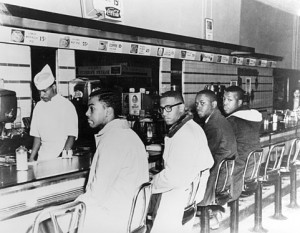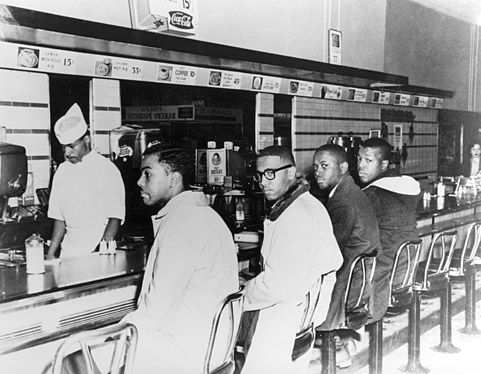
Statistically, single mothers have lower household income than their married counterparts, which comes with a range of problems. That shouldn't be controversial - it is just data - but people are turning it into an argument about "attacking the victim". Image © Hemera/Thinkstock
According to a new story out by the Associated Press and posted on Yahoo, “Blacks struggle with a 72 percent unwed mothers rate”, the out-of-wedlock pregnancy crisis in the United States has become unfathomable with single mother pregnancies accounting for between 17% of pregnancies in Asians to 72% of pregnancies in African Americans.
Why should we, as investors, care? First, having a child out of wedlock does not make you a bad person. I’m going to speak solely of the financial ramifications that result in most but not all cases. On average, single parent households have lower incomes, lower educational attainment, and higher unemployment (this could explain, in part, how the black male unemployment level reached 25 to 40% during the recession).
Ultimately, this sort of misery in the system is bad for civilization and we should figure out how to solve it. Our goal is to increase the average family’s household income as much as possible so their absolute standard of living rises (that is more important than the gap between the rich and the poor by itself). As Americans, we are all better off if each household has a chance at social mobility.
A Look at the Problem By Demographic Group
The story points out that the out-of-wedlock pregnancy rate is different for various socio-ethnic groups.
The black community’s 72 percent rate eclipses that of most other groups: 17 percent of Asians, 29 percent of whites, 53 percent of Hispanics and 66 percent of Native Americans were born to unwed mothers in 2008, the most recent year for which government figures are available. The rate for the overall U.S. population was 41 percent.
[mainbodyad]It doesn’t surprise me Asian Americans have the lowest out-of-wedlock pregnancy rate because they also have much lower instances of smoking and drinking, achieve much higher educational attainment, and some sub-groups of Asian immigrants are 5x more likely to be millionaires than the average American according to the great research of Dr. Thomas Stanley. As a whole, Asian Americans statistically outperform in life because they behave in a certain why that results in different outcomes. Causality. Life is causality. Our outcome is determined by our choices in most, but not all, cases.
There is a great deal that the average United States citizen could learn by emulating Asian American immigrants – a focus on education, family planning by having children in wedlock, living below your means, owning your own business, and acting honorably.
Solving the Problem Is Difficult Due to Past History Of Racism (Really? I Wasn’t Even Alive For the Civil Rights Movement!)
The story goes on to point out that the data, which has no political agenda, is nevertheless controversial because of scars held by people who, frankly, were alive at a time that is nothing but a history book for me. The author of the article argues that this fight has been going on since senator Daniel Patrick Moynihan, in 1965, called the black illegitimacy rate of 24% compared to the white rate of 4% a “tangle of pathology” and people accused the senator of blaming the victim.
In essence, the fight comes down to two sides: Those who think this is about behavior and those who think this is about racism and lack of education, jobs, training, etc. etc. etc. It is such a “sensitive” topic that people don’t want to bring it up in conversation.

I wasn't even alive for the lunch counter sit-ins in the 1960's. They are as distant history to me as reaching about the War of 1812 or Napoleon conquering Europe. And I'm almost 30 years old. Image from Wikimedia Commons.
People can’t talk about this because of the hurt left over from the civil rights movement? You’ve got to be kidding me.
I wasn’t even alive for that and I’m almost 30 years old. I read about it in social studies as a kid. My childhood was spent with Bill Clinton as President, Oprah Winfrey dominating television, Michael Jordon the most powerful athlete in the world, and Bill Gates on the cover of all newspaper publications thanks to Windows 95. The idea of lunch counter sit-ins and overt racism just seems so impossible to me that it is no different than reading about the French & Indian War. I’m just too damn young to appreciate that it was even possible.
To be completely, totally honest: If it weren’t for an episode of Oprah Winfrey describing what Sidney Poitier meant to her as a child because of the limited opportunities she had, I’m not certain I would have realized how bad it was because adults just assume that kids know the same things they did. That was something I saw in seventh or eighth grade, maybe? I remember being dumbstruck that someone as powerful and rich as her could have been told she could never be on television.
The Older Generation Assumes the Younger Generation Has the Same Experiences. That Is a Huge Mistake.
But then I realized, older people just assume that younger people know history. In my case, even I do the same thing. Consider the annual survey of incoming college freshman (called the “mindset list”). These people are ten years younger than me. Here are just some of the things that are true for the college class of 2014:
- Fergie is a pop singer, not a member of the British Royal Family
- Dr. Jack Kevorkian has never been licensed to practice medicine in their entire lifetime
- Clint Eastwood has always been a director, hardly having acted
- Ice-T is an actor on Law & Order, not a rapper
- Kurt Cobain, who died in a 1994 suicide, is played on the oldies station
- A majority don’t know how to write in cursive
- Czechoslovakia has never existed
- Oprah Winfrey has never not been the leading or near-leading talk show host in the world
- They have no idea who Rodney King or Dan Quayle are
- Russia has never been anything but an ally to the United States
- Most have never used a telephone with a chord
- In their lifetimes, Ivana Trump has never been married to Donald Trump
- They weren’t around for the original Nintendo. Their childhoods were spent playing the original Playstation and, if they had older siblings, Super Nintendo
- They never listened to music on cassette tapes
- MySpace was founded when they were in 4th grade
- Walt Disney’s “The Lion King”, “Aladdin”, “Beauty and the Beast” and “The Little Mermaid”? Yeah, those were released before they were born.
Out-of-Wedlock Pregnancies Mean Lower Incomes, Lower Educational Attainment, and Lower Financial Security
Look at the data. Out-of-wedlock pregnancies are a broad spectrum problem across most demographic groups. It has real ramifications for family income levels, educational attainment and more. As an investor, one of my goals is for the average family to be as successful and financially independent as possible. The pregnancy crisis threatens that goal.
[mainbodyad]What frustrates me is that everyone wants to blame “the system”. Each of us is responsible for our own actions. My life was certainly harder because my parent’s didn’t have money when I was a kid. There are people who are on the Forbes list that have dyslexia so bad, they can hardly read. Sometimes, life hands you a terrible hand of cards and there is no getting around it. You can’t continue to use that as an excuse for your own decisions like the woman, which the story goes on to discuss, who has four children with three different men.
The consensus? It’s not her fault it is “the system’s” fault. That kind of attitude baffles me. I really, truly want to understand how a woman who is my age can say it is “the system’s” fault for her life choices. “The system” made her copulate? “The system” made her do it without a condom? “The system” made her not take birth control? “The system” made her sleep with someone that wasn’t her husband? “The system” made her repeat this mistake not once, not twice, not three times, but four times with three different men? I just don’t get it. I really don’t get it.
Vitriolic Attacks Hit Those Who Try to Solve the Out-of-Wedlock Pregnancy Crisis
When one person tried to create a group called No Wedding No Womb focused on encouraging children in marriage, she was attacked by people such as blogger Tracy Clayton, who said, “My mom worked hard to raise me, so I do take it personally.” Why was the No Wedding No Womb blog attacked? For passages such as this (which I think are awesome):
Speaking of financial planning, I’d have to advocate that we start recognizing that economic empowerment ties in with sex and reproduction. For young people (and adults) who cannot support themselves, starting a family right now will likely hurt you, the child, immediate family members, and the community. Call me classist, elitist, or whatever, but the reality is that kids cost money and if you don’t have it to spend, you need to wait until you do. I hope we one day get to a world in which everyone is financially empowered. I’d love for starting a family to simply be a personal choice. We’re not there yet though, so please take pause and plan.
That is a great summation. I don’t see how anyone can look at it any other way because we have pure, raw data from the banking system that indicates people who are born to single parent households on average end up poorer, they have lower educational attainment, they have harder lives in general … it’s not some fairy tale, it’s the data. Shouldn’t we try, out of compassion or even self-interest, to fix it because the better educated our workforce, the wealthier our families, and the more stable our households, the stronger our nation? I want the average household income to skyrocket in real inflation-adjusted terms. How can any attempt to achieve that be considered evil? People need to get over their own baggage.
In other words, I personally benefit from a society where the average family is more successful. It is in my own self-interest to want to strengthen the average American’s education, pocketbook, and experience credentials.
It’s About Building Human Capital
There is a woman named Amy Wax, a law professor at the University of Pennsylvania, who seems to get it. She says it is about building “human capital”. She is exactly right. You want doctors, lawyers, investment bankers, inventors, executives, and business owners, which is much harder to do – again, the statistics show it – if you only have a single parent. It doesn’t mean you can’t (Bill Clinton became President of the United States and was raised by his mother and grandmother), it just means it is harder.
Refusing to solve the out-of-wedlock pregnancy issue because it might make some people feel inferior is like telling a fat woman she shouldn’t go to the gym because it would be an admission she is overweight, or telling a poor guy he shouldn’t cut his expenses because it is an admission he isn’t earning as much as he’d like. You start solving problems by confronting problems.



